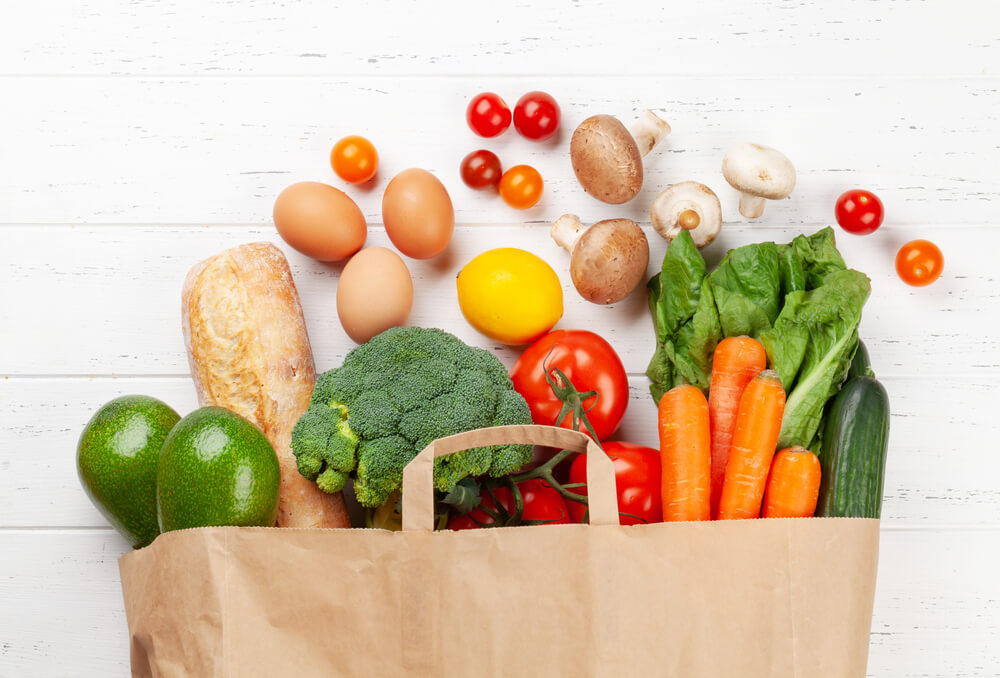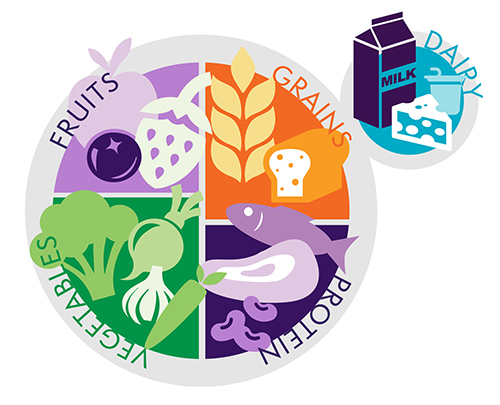When grocery shopping, you likely come across a variety of food labels that include terms like natural, organic or gluten free. If you don’t speak the lingo, it can be difficult to know which products are the best choices for your dietary needs and nutrition goals. Understanding these common food terms can help you be more informed on your next grocery run.
Natural
In order to be labeled natural, a product has been minimally processed and does not include synthetic coloring, flavoring, dyes or preservatives. However, the USDA and FDA’s regulation of the word “natural” allows these foods to contain genetically modified organisms (GMOs), high fructose corn syrup and can be produced with pesticides.
Organic
When products have a USDA Organic seal, they are grown and processed with only natural substances and methods and has 95% or more organic content. This means no synthetic fertilizers and pesticides are used and the foods do not contain artificial preservatives, colors or flavors. If a food item contains 70-94% organic ingredients, it is labeled "Made with Organic Ingredients."
Non-GMO
GMO stands for genetically modified organism and is when a plant or animal’s genetic makeup is altered in some way in a lab, resulting in genetically modified (GM) foods. Common GMO ingredients include corn syrup, canola oil, soybeans, cornstarch and granulated sugar. GMOs can be found in the foods we eat, but most commonly are used for animal food.
When a product is labeled non-GMO, it means it has been grown and processed without any genetic modification. Organic foods and products do not have any GMO ingredients, however not all non-GMO foods are organic. The term is not regulated by the government, but by a non-profit organization called The Non-GMO Project that provides and enforces the non-GMO certification.
Grass fed
When meat or dairy products are labeled grass-fed, this means the animal is raised only on grass or hay. While having the USDA’s grass-fed label means there are restrictions to what the animals eats, it may receive antibiotics or hormones.
Pasture raised
Many grocery store items from eggs to ground meat are labeled pasture raised. A pasture-raised animal must have had access to the outdoors for a minimum of 120 days per year. The size of the enclosure varies between farms, but typically allows animals to spend more time outdoors than inside.
Free range
When products have free range on the package, it means the animals have continuous access to the outdoors. Birds for example are provided shelter in a building, room or area with unlimited access to food and fresh water and continuous access to the outdoors during their production cycle; the outdoor area may or may not be fenced could also be covered with netting-like material.
Cage free
Commonly seen on egg cartons, cage free means the chickens are not kept in cages and are able to freely roam a building, room or enclosed area with unlimited access to food and fresh water during their production cycle.
Gluten free
For people with celiac disease or food allergies, they often need to follow a gluten-free diet. When foods are labeled gluten free, they do not contain gluten, or the protein found in wheat, barley or rye. You can often find gluten-free options for pasta, bread, crackers, flour and cereal.
Sugar free
When you spot sugar free on the label, it means that one serving of the food has less than 0.5 grams of added or naturally occurring sugar according to the FDA. You may also see sugar free or zero sugar used on items that include artificial sweeteners like NutraSweet and Splenda and sugar alcohols like sorbitol and mannitol.
Low sodium
Food items that are marked low sodium or reduced sodium means there is 25% less sodium in that product than what the food normally has.
Plant based
Plant-based foods contain ingredients that are made from plants, like fruit and vegetables, whole grains, nuts, seeds and legumes, but can also have milk, eggs or other animal products as ingredients.
Vegan
Vegan foods do not contain any ingredients that come from an animal, whether that’s meat, dairy, eggs or honey.
Locally grown
When food or other products are marketed as locally grown, they are grown or produced, processed and sold within a certain location. The label doesn’t necessarily mean that item comes from the local area you live in, but a limited geographic area.
BPA free
BPA stands for bisphenol A, an industrial chemical used in the manufacturing of certain polycarbonate plastics and has been found to have a hormone-like effect on the body. This chemical is commonly used inside cans, bottles and other containers that store food.
As you gain a better understanding of food label vocabulary, you can make more educated decisions about the items you’re buying and what choices are best for your health and nutrition. For more detailed information on these terms, visit the USDA and FDA websites.
Mom's Meals® food as medicine solutions can help
Mom’s Meals provides the most comprehensive food as medicine solutions nationwide. Our nutrition solutions are designed for all ages to bring comfort and inspire confidence in people seeking to live healthier, manage chronic health conditions, recover from illness and continue to live independently. Our integrated solutions include medically tailored meals, produce and pantry boxes, oral nutrition supplements and shelf-stable, kosher, and halal meals, backed by nutrition counseling and education.
We offer medically tailored meals for most common nutrition-sensitive chronic health conditions, such as diabetes, heart and renal diseases along with gluten-free and vegetarian options. Each of our 60+ meal choices is made with high-quality ingredients, designed by registered dietitians and crafted by professional chefs in USDA- and FDA- inspected facilities.
Mom’s Meals are free from added MSG, partially hydrogenated oils, high-fructose corn syrup, added trans fats, artificial sweeteners such as sucralose and preservatives banned in the EU. Our meal trays do not contain harmful chemicals often found in black plastics, including BPA, phthalatesand certain flame retardants like brominated and organophosphate compounds.
Learn more about the home-delivered convenience of delicious, nutritious and ready-to-heat-and-eat options from Mom’s Meals.




